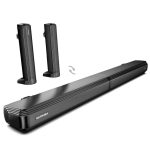In the realm of electrical work, safety reigns supreme. An electrician’s toolkit is incomplete without an electrical tester, a device pivotal in ensuring the safety and functionality of electrical systems. But what exactly does an electrical tester do? Let’s delve into the multifaceted role of this indispensable tool.
The Core Function: Detecting Voltage
The Primary Task
At its core, an electrical tester’s primary function is to detect the presence or absence of voltage in an electrical circuit. This seemingly simple task is critical in preventing electrical shocks and ensuring safe working conditions for electricians.
Beyond the Basics
However, modern electrical testers go beyond merely detecting voltage. They can also:
- Measure voltage: Determining the specific voltage level in a circuit is crucial for diagnosing electrical issues and selecting appropriate components.
- Test continuity: Checking for a continuous electrical path helps identify broken wires or faulty connections.
- Identify polarity: Determining the correct polarity of wires is essential for proper circuit operation.
- Test ground fault circuit interrupters (GFCIs): GFCIs are safety devices that protect against electrical shocks. Testing them regularly is essential to ensure their functionality.
Different Types of Electrical Testers
Non-Contact Voltage Testers
These testers detect voltage without needing to make direct contact with the electrical conductor. They are particularly useful for quick checks and identifying live wires in a safe manner.
Voltage Testers with Probes
These testers require direct contact with the electrical conductor to detect voltage. They offer more precise measurements and additional testing capabilities.
Multimeters
Multimeters are versatile electrical testers that can measure voltage, current, resistance, and other electrical properties. They are essential tools for troubleshooting and diagnosing electrical problems.
The Importance of Electrical Testers
Safety First
Electrical testers are paramount in ensuring the safety of electricians and anyone working with electrical systems. They help prevent electrical shocks and identify potentially hazardous situations.
Troubleshooting and Diagnostics
Electrical testers are invaluable for troubleshooting and diagnosing electrical problems. They help pinpoint faulty components, identify wiring issues, and ensure proper circuit operation.
Quality Assurance
Electrical testers are also used in quality assurance processes to verify the functionality and safety of electrical installations.
Using an Electrical Tester Safely
Precautions
While electrical testers are designed to be safe, it’s important to use them with caution. Always follow the manufacturer’s instructions and adhere to safety guidelines.
Essential Tips
- Select the right tester: Choose a tester appropriate for the task at hand and the voltage level being tested.
- Inspect the tester: Before each use, check the tester for any damage or wear.
- Wear protective gear: Use insulated gloves and safety glasses when working with electrical systems.
- Avoid touching live wires: Never touch live wires directly. Use the tester’s probes or non-contact detection feature.
- Test in a controlled environment: Whenever possible, de-energize the circuit before testing. If testing a live circuit, take extra precautions.
Choosing the Right Electrical Tester
Factors to Consider
When selecting an electrical tester, consider the following factors:
- Type of tester: Choose a tester that meets your specific needs and testing requirements.
- Voltage range: Ensure the tester can handle the voltage levels you’ll be working with.
- Features: Consider additional features such as continuity testing, polarity identification, and GFCI testing.
- Brand and quality: Opt for a reputable brand known for producing reliable and durable testers.
- Price: Set a budget and compare prices from different brands and models.
An electrical tester is an electrician’s indispensable companion, ensuring safety, facilitating troubleshooting, and guaranteeing the quality of electrical work. From detecting voltage to measuring various electrical properties, this versatile tool plays a crucial role in the world of electrical installations and maintenance.
By understanding the functions and different types of electrical testers, electricians can make informed choices and use these tools effectively. Remember, safety is paramount when working with electricity. Always prioritize safety precautions and use electrical testers responsibly.
With the right electrical tester in hand, electricians can confidently navigate the complexities of electrical systems, ensuring the safety and functionality of every installation.
Beyond the Basics: Advanced Functions of Electrical Testers
Testing GFCIs
Ground Fault Circuit Interrupters (GFCIs) are life-saving devices designed to protect against electrical shocks in areas prone to moisture, such as bathrooms and kitchens. An electrical tester equipped with a GFCI test button can verify if these devices are functioning correctly.
Testing Circuit Breakers
Circuit breakers are safety devices that protect electrical circuits from overloads and short circuits. Some advanced electrical testers can test circuit breakers to ensure they trip at the correct current levels.
Measuring Current
Certain electrical testers, particularly multimeters, can measure the flow of current in a circuit. This is helpful in diagnosing issues like overloaded circuits or identifying faulty components drawing excessive current.
Measuring Resistance
Resistance is the opposition to the flow of current in a circuit. Measuring resistance with an electrical tester can help identify faulty components, such as burnt-out resistors or damaged wiring.
Testing Diodes and Transistors
Diodes and transistors are semiconductor devices used in various electronic circuits. Some electrical testers have dedicated functions to test the functionality of these components.
The Evolution of Electrical Testers
From Simple to Sophisticated
Electrical testers have come a long way from their humble beginnings. Early testers were simple devices that could only detect the presence or absence of voltage. Today, we have advanced testers with digital displays, multiple functions, and data logging capabilities.
The Impact of Technology
Technological advancements have significantly improved the accuracy, functionality, and user-friendliness of electrical testers. Digital displays provide precise readings, while additional features like auto-ranging and data hold make testing more efficient.
The Future of Electrical Testers
As technology continues to evolve, we can expect even more sophisticated electrical testers in the future. These testers may incorporate wireless connectivity, cloud storage, and advanced diagnostic capabilities.
The Importance of Proper Maintenance
Keeping Your Tester in Top Shape
To ensure accurate and reliable readings, it’s important to maintain your electrical tester properly. This includes:
- Regular cleaning: Wipe down the tester with a clean, dry cloth after each use.
- Battery replacement: Replace the batteries as needed to ensure proper operation.
- Calibration: Have the tester calibrated periodically by a qualified technician to maintain accuracy.
- Storage: Store the tester in a clean, dry place when not in use.
Electrical Testers in Different Industries
Residential Applications
In residential settings, electrical testers are commonly used for tasks such as:
- Troubleshooting household electrical problems: Identifying faulty outlets, switches, or appliances.
- Installing new electrical fixtures: Ensuring proper wiring and connections.
- Testing GFCIs and circuit breakers: Verifying the functionality of safety devices.
- Performing DIY electrical projects: Ensuring safety and proper installation.
Commercial and Industrial Applications
In commercial and industrial settings, electrical testers are used for more complex tasks, such as:
- Maintaining and troubleshooting industrial machinery: Identifying electrical faults and ensuring safe operation.
- Installing and testing complex electrical systems: Verifying proper wiring, connections, and functionality.
- Performing electrical safety inspections: Ensuring compliance with safety regulations.
- Troubleshooting power distribution systems: Identifying and resolving power outages and other issues.
Automotive Applications
Electrical testers are also essential tools for automotive technicians. They are used for tasks such as:
- Diagnosing electrical problems in vehicles: Identifying faulty components, such as batteries, alternators, starters, and sensors.
- Testing automotive wiring and circuits: Ensuring proper connections and functionality.
- Installing and testing automotive electrical accessories: Verifying proper operation and compatibility.
The Role of Electrical Testers in Renewable Energy
Solar Power Systems
Electrical testers are crucial in the installation and maintenance of solar power systems. They are used to:
- Test solar panels: Verify the output voltage and current of solar panels.
- Test charge controllers: Ensure proper battery charging and system protection.
- Test inverters: Verify the conversion of DC power from solar panels to AC power for household use.
- Troubleshoot solar power system issues: Identify and resolve problems with solar panels, batteries, inverters, or wiring.
Wind Power Systems
Electrical testers are also used in the installation and maintenance of wind power systems. They are used to:
- Test wind turbines: Verify the output voltage and current of wind turbines.
- Test control systems: Ensure proper operation and safety of wind turbines.
- Troubleshoot wind power system issues: Identify and resolve problems with wind turbines, generators, or wiring.
Conclusion
A Vital Tool for Electrical Safety and Functionality
In conclusion, electrical testers are vital tools that play a crucial role in ensuring the safety and functionality of electrical systems. From simple voltage detection to advanced diagnostic capabilities, these devices empower electricians to work confidently and efficiently.
Choosing Wisely and Using Safely
By understanding the various functions and capabilities of electrical testers, electricians can choose the right tool for the job and use it safely and effectively. Remember, safety is paramount when working with electricity. Always prioritize safety precautions and use electrical testers responsibly.
Embracing Technological Advancements
As technology continues to advance, electrical testers are becoming even more sophisticated and user-friendly. By embracing these advancements, electricians can stay ahead of the curve and ensure the highest level of safety and quality in their work.















